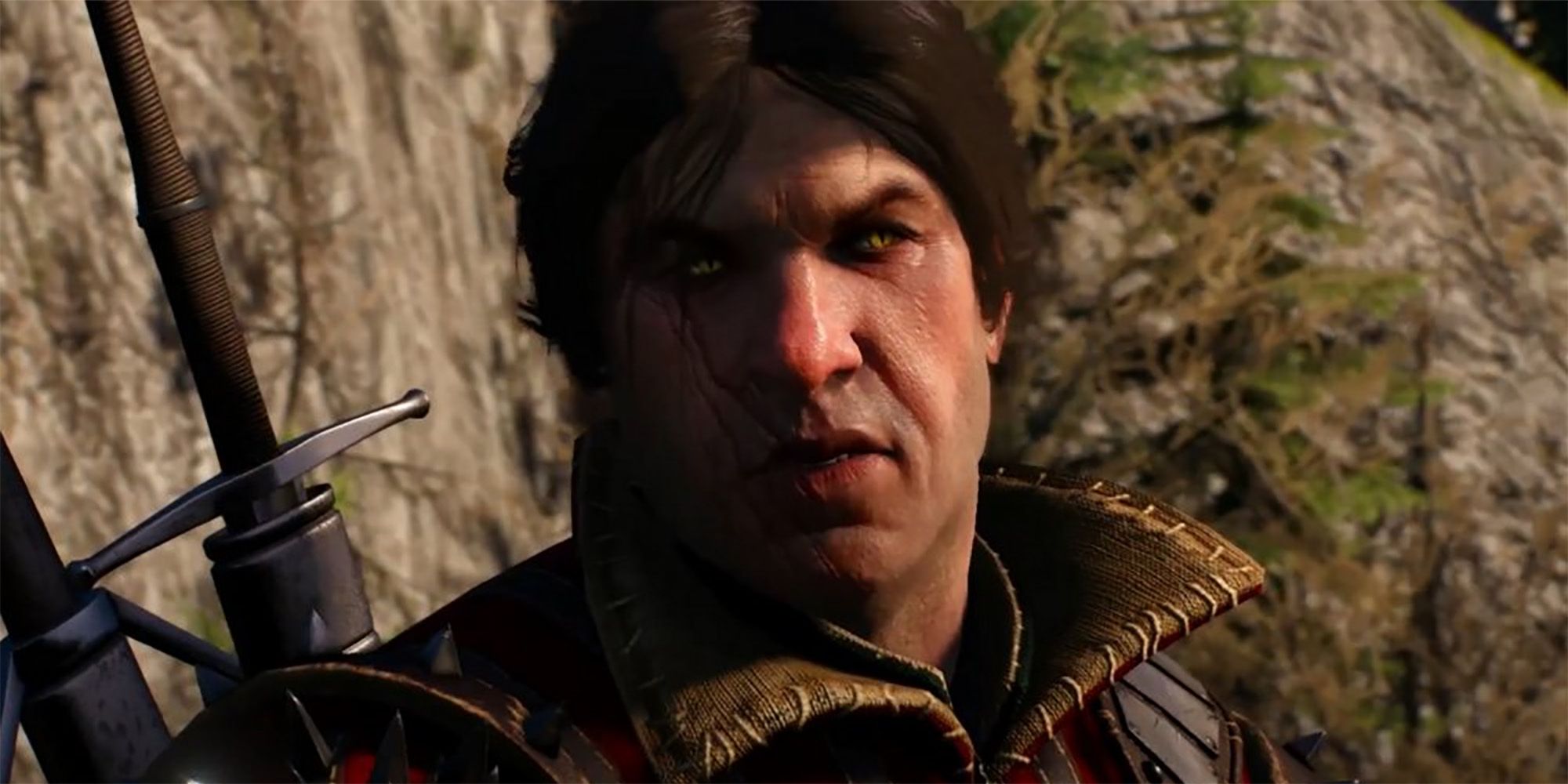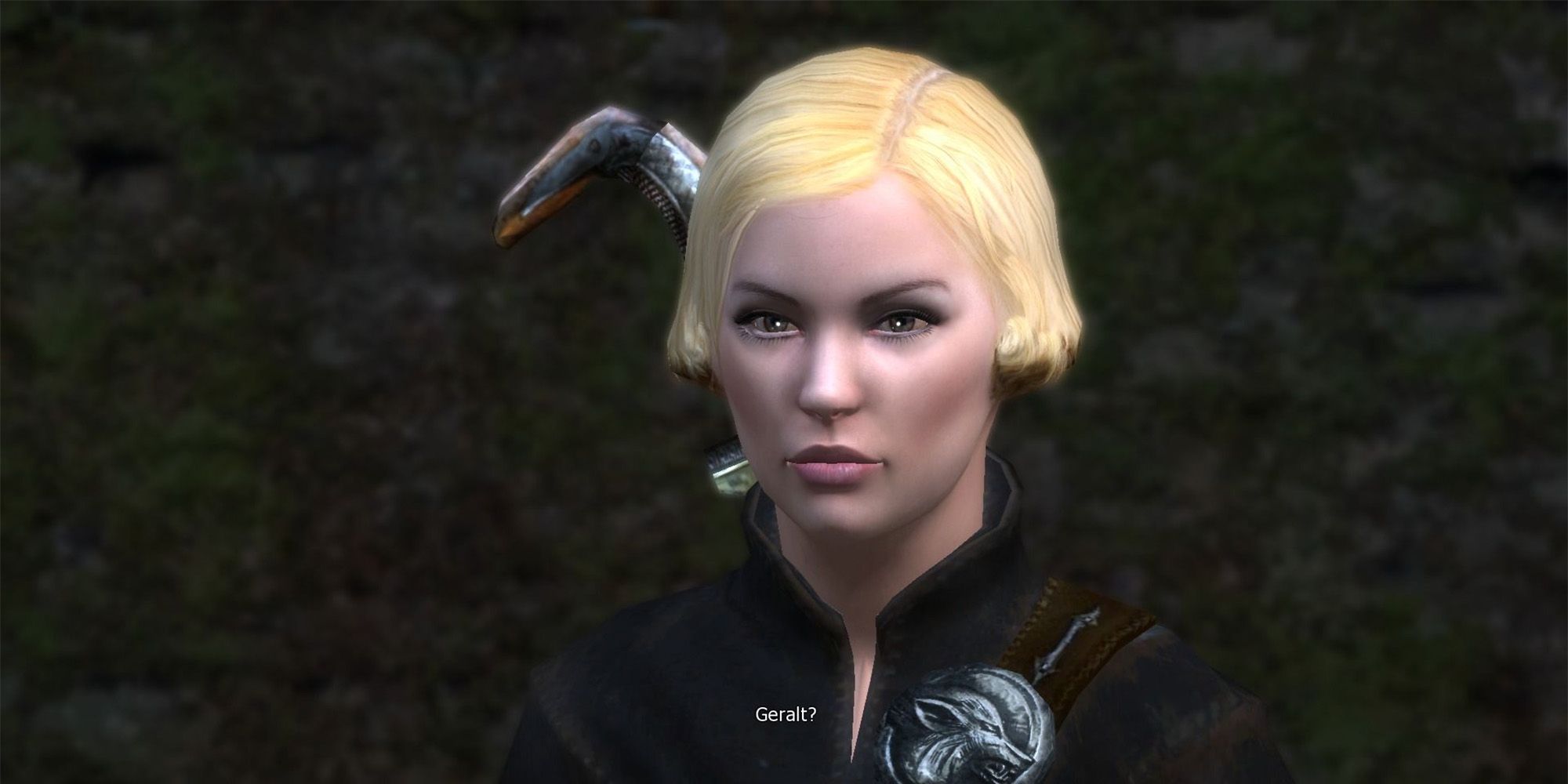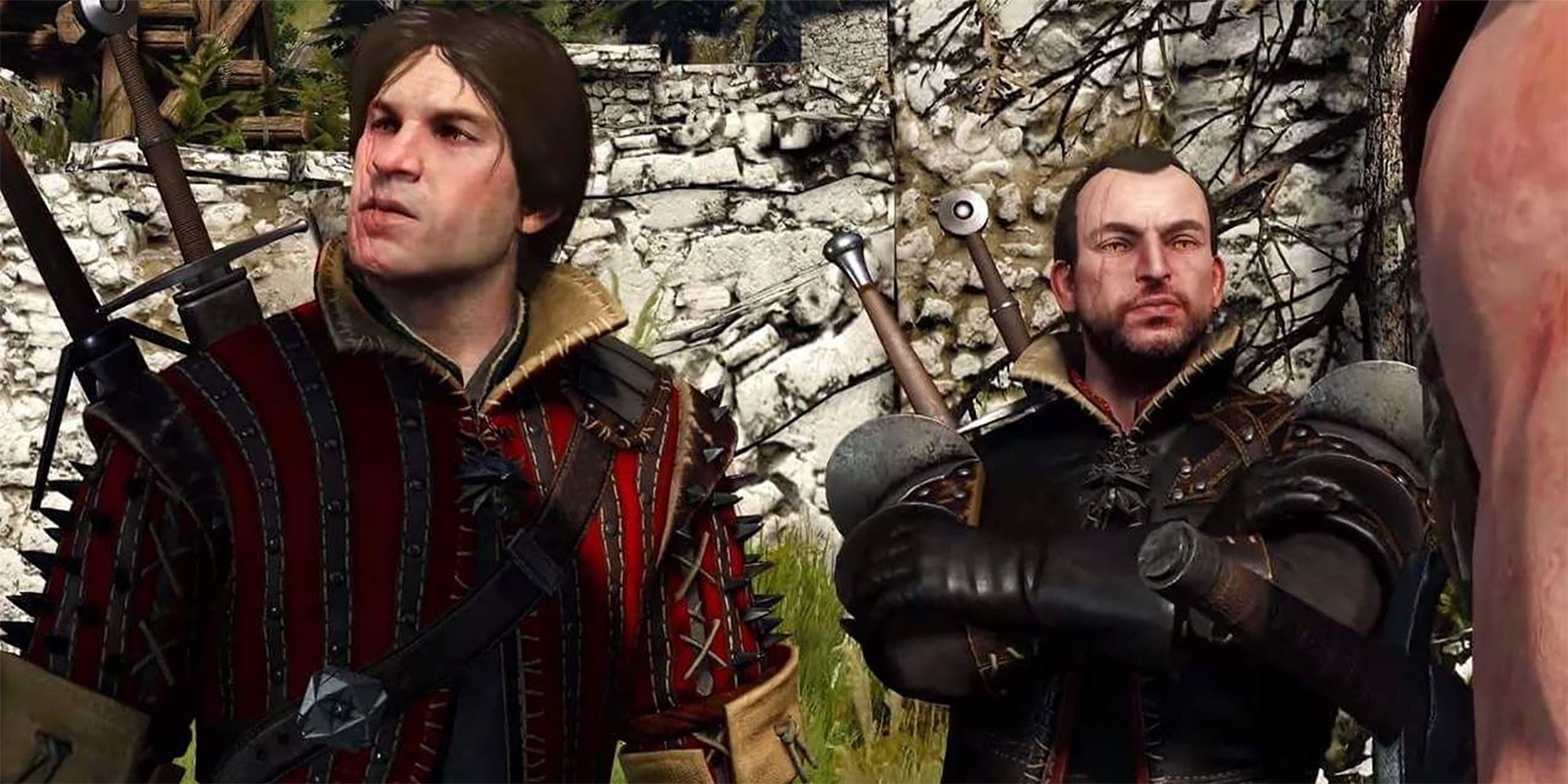In the world of The Witcher, those who undergo the trials often face traumatic circumstances during their making. These traumas tend to interfere with their memories, making it all but impossible for them to remember their lives before becoming witchers. Some may look upon this as a blessing, considering the normalcy they must give up in order to become the monster fighting heroes they are, but not being able to recall one's mother and father, siblings or childhood home also has the potential to set witchers even further apart from the rest of the society they serve.
Eskel of the School of the Wolf remembered very little about his childhood beyond that he was born in the mountains and his mother used to sing an old hiking tune about a hen to him when he was small. It is unknown within The Witcher canon how Eskel came to Kaer Morhen in the Blue Mountains, but he arrived close to the time Geralt was there and the two of them trained and took their trials together.
Over the years, Eskel and Geralt formed an incredibly close bond, the two of them fulfilling the role of brother to one another and often getting up to mischief and antics that brought their mentor and father figure, Vesemir, chasing after them with a leather strap. As they came to the time of their trials together, Eskel was terrified he would lose his brother-in-arms to the mutations that inevitably turned Geralt's hair stark white, but they both survived and went on to become dutiful witchers. Though Eskel never quite earned the renown that Geralt did, he was well-respected by those he did serve, having a reputation as an easy-going, kind and reliable professional who served his duty with honor.
The canon between Andrzej Sapkowski's literary creation and CD Projekt Red's video game adaptations often differ, and one of the most noticeable places these two worlds collided and branched off from one another was the addition of a child of surprise to Eskel's history. Though Sapkowski did give readers some information about the other witchers of Kaer Morhen, there was never any mention of Eskel having a child surprise, but CD Projekt Red integrated Deirdre Ademeyn into the very first Witcher game.
According to game canon, Eskel rescued the prince of Caingorn from a pack of werebubbs, and the prince offered the witcher whatever he wanted as a reward for his service. Eskel had no idea what to ask for, and recounted back to all the stories he'd heard over the years of the Law of Surprise, and the number of times he'd heard Vesemir ask for that as a reward himself. He said he would take that which the prince found at home but did not expect, which just so happened to be a newborn princess named Deirdre, born during an eclipse.
Much like Geralt, Eskel didn't really want the responsibility of a child of surprise, and for years he avoided returning to claim her. Unfortunately, Deirdre had an uncanny ability to obstruct magic around her, which led people to claim she was under the "Curse of the Black Sun."
The council of sorcerers sent Sabrina Glevessig, which resulted in Deirdre's ostracization and sent her running to Kaer Morhen seeking refuge. Sabrina wanted to kill Deirdre and study her, but Eskel didn't want that for her. On the other hand, he really had no idea what else to do, so when Vesemir prompted the witchers to come up with a solution, Eskel asked Geralt for help.
In the game, if the witchers chose not to help Deirdre, she fled in a rage and spent the next couple of years being hunted. It was assumed she wound up dead, an experiment for Sabrina to meddle in. If they did help Deirdre, Sabrina had allied herself with Deirdre's younger brother, who sought to take the throne. After catching Eskel, Deirdre accidentally struck out, carving into his face and leaving him with yet another scar. She went on to become the monarch, and though she reached out to Eskel through a letter years later, he tossed it into the fire without reading it, choosing to remember her in his own way.
Eskel also played a significant role in The Witcher 3: Wild Hunt, participating in Ciri's training while she was young and later having an opportunity to drink with Geralt and fellow witcher, Lambert, before facing the Wild Hunt when they attacked Kaer Morhen. After Vesemir was killed, Eskel tried to stay on in Kaer Morhen for a time, but without his mentor and father figure there, it felt strange. Eventually, he moved on, returning to the witcher's path for an indeterminate amount of time and carrying out his duties as he had always done.
What became of Eskel after he left Kaer Morhen is a matter of debate. In Sapkowski's books, Ciri had a vision of Eskel's death. Seeing him alongside a number of other witchers on a scaffolding, presumably about to be hanged, she withheld this information, along with what really happened to Geralt and Yennefer, while sharing her story with Galahad. She gave everyone a happy ending instead. It's a well-known fact witchers are generally not destined for happy endings, however, as their lives often offered in unappreciated service to a world that does not respect or honor them despite the risks they take to keep people safe.



